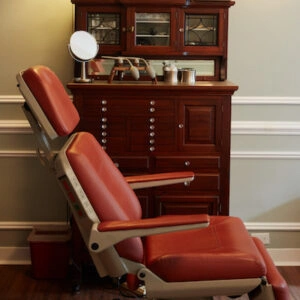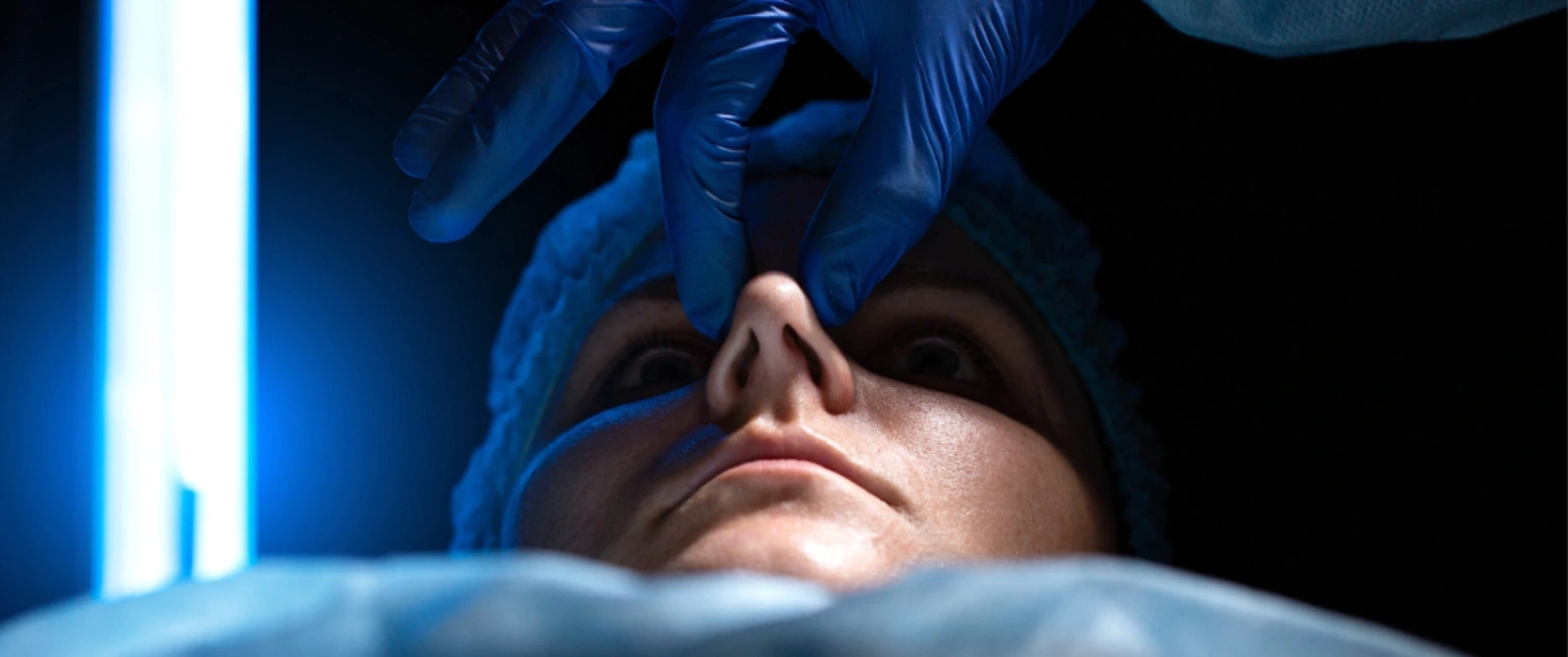Breathe well again and avoid infections with sinus surgery
For over a decade, Dr. Mourad has assisted countless patients, including individuals from Upper West Side, in addressing chronic sinus issues such as sinus infections, nasal blockages, recurring headaches, and other related conditions. Employing the latest medical advancements and highly refined techniques, he provides individualized care that considers the unique circumstances of each patient. If you live in Upper West Side and are dealing with persistent sinus discomfort or challenges with breathing, Dr. Mourad’s expertise ensures you receive treatment aimed at lasting relief, better nasal function, and an enhanced overall sense of well-being.
Book an appointment to determine if you need sinus surgery in Upper West Side
What is sinus surgery?
Inside the nose, there are numerous small cavities and passageways that are connected and allow airflow and drainage between the two sides of the nasal cavity. Sinus surgery aims to enlarge these channels and remove select portions of the sinus walls, helping to prevent obstructions while promoting more efficient drainage. By widening these passages, pressure inside the nose is reduced, and the occurrence and severity of sinus infections can be significantly lowered. In addition, creating larger and more accessible sinus spaces allows treatments such as saline rinses and topical medications to reach problem areas more directly, increasing the overall effectiveness of therapy and improving sinus function over time.
What are the different types of sinus surgery?
To improve sinus drainage, surgeons typically rely on two primary procedures: Functional Endoscopic Sinus Surgery, commonly known as FESS, and Balloon Sinuplasty. In more complex cases, such as revision surgeries or when the sinuses located near sensitive regions like the eyes or brain are impacted, the use of Image Guidance technology is often employed. This advanced tool provides precise navigation during the operation, helping the surgical team safely access and treat the affected sinus passages while minimizing risk to surrounding structures.
Functional endoscopic sinus surgery (FESS)
FESS, or Functional Endoscopic Sinus Surgery, is recognized as the most commonly performed surgical procedure to improve sinus function. The surgery involves the careful use of an endoscope, which is a thin, flexible instrument equipped with a light and camera at its tip. This device is inserted through the nasal passages, giving the surgeon a magnified view of the sinus cavities. Once visualized, obstructions such as nasal polyps, excess tissue, or small bone growths that interfere with proper airflow and drainage can be meticulously removed. The sinus openings are then expanded to allow improved drainage and minimize inflammation. Typically, FESS is performed under general anesthesia, with the procedure length depending on the complexity and specific anatomy of each patient.
Image-guided surgery (IGS)
For more complex cases, a three-dimensional image-guided navigation system may be employed. This system uses information from a CAT scan to offer real-time guidance of surgical instruments within the nasal passages and sinus cavities. Image guidance can be used with Functional Endoscopic Sinus Surgery or with select Balloon Sinuplasty procedures. It is particularly important in revision surgeries or when the sinuses being operated on, such as the frontal, lateral ethmoid, or sphenoid sinuses, are located close to sensitive areas including the brain, eyes, and critical nerves and blood vessels. This technology increases surgical precision and safety, making it a valuable tool for complicated sinus interventions.
Balloon Sinuplasty
Balloon sinuplasty is a gentle, minimally invasive procedure aimed at opening sinus passages that have become blocked, providing long-term relief from chronic sinus pressure or infections. In this procedure, a thin wire guide is carefully inserted into the main sinus cavities, followed by the advancement of a small balloon catheter into the sinus opening. The balloon is then gradually inflated with water to widen the passageway, allowing improved drainage and reduced inflammation. This technique can be used on three of the four major sinus cavities, but it does not remove inflamed or infected tissue. It is generally not suitable for patients with nasal polyps or disease in the ethmoid sinuses, as these conditions require more extensive surgical methods.
Open Sinus Surgery
For more complicated cases, traditional open sinus surgery may be required. This procedure involves making precise, small incisions, either inside the nostrils or on the upper lip, which provides the surgeon direct access to the sinuses. This approach allows for the removal of tissue, obstructions, or other problematic structures that cannot be addressed through minimally invasive methods, making it an effective solution for more severe sinus conditions.
Transoral Endoscopic Surgery
An innovative approach called transoral endoscopic sinus surgery offers an alternative way to reach the sinuses through the mouth. Using a small endoscope, the surgeon can carefully remove tissue or blockages that contribute to chronic infections or impaired sinus drainage. This method avoids external cuts, making it minimally invasive while still providing patients with effective relief and improved sinus function.
Discuss risks associated with each sinus surgery option with Dr. Mourad
Understanding that different forms of sinus surgery exist, each with unique benefits, indications, and associated risks, is essential for anyone considering these procedures. The type of surgery recommended will depend on factors such as the patient’s specific sinus condition, structural anatomy, and overall medical background. A knowledgeable surgeon will thoroughly discuss all possible surgical approaches, provide detailed explanations about the advantages and potential drawbacks of each method, and assist the patient in evaluating whether undergoing sinus surgery is the most effective and appropriate choice for their individual needs.
When is sinus surgery required?
Acute sinusitis refers to a sinus infection that typically lasts for less than one month, while chronic sinusitis describes a long-standing infection that does not respond adequately to standard treatments like antibiotics or corticosteroid therapy. Both acute and chronic sinus infections can have a substantial impact on a person’s quality of life, making everyday tasks more difficult and causing persistent discomfort or pain.
Those who suffer from repeated episodes of acute sinusitis in a single year, or who continue to experience chronic sinus issues despite medical treatment, are often suitable candidates for surgical solutions. The effects of these conditions on quality of life may include prolonged or frequent absences from work or school, ongoing physical discomfort, fatigue, and emotional stress such as anxiety or depression. Consulting with Dr. Mourad allows patients to carefully evaluate whether a surgical approach could provide significant relief and improve their overall well-being.
Those who suffer from repeated episodes of acute sinusitis in a single year, or who continue to experience chronic sinus issues despite medical treatment, are often suitable candidates for surgical solutions. The effects of these conditions on quality of life may include prolonged or frequent absences from work or school, ongoing physical discomfort, fatigue, and emotional stress such as anxiety or depression. Consulting with Dr. Mourad allows patients to carefully evaluate whether a surgical approach could provide significant relief and improve their overall well-being.
Recurring infections
Certain patients encounter recurrent sinus infections despite attempting standard medical treatments, including antibiotics, nasal sprays, or corticosteroid therapies. For individuals facing persistent sinus issues, sinus surgery is frequently recommended to enhance sinus drainage, improve overall sinus function, and decrease the frequency of future infections. By correcting structural abnormalities or blockages that contribute to repeated infections, surgical intervention can provide long-term relief, minimize discomfort, and improve the patient’s day-to-day quality of life.
Chronic sinusitis
Chronic sinusitis occurs when inflammation of the sinuses continues over a prolonged period, often leading to symptoms such as facial pressure, nasal congestion, persistent headaches, and a diminished sense of smell. Many patients find that non-surgical management, including medications, nasal irrigation, and lifestyle adjustments, does not adequately resolve these issues. Surgical treatment may be indicated to remove blockages, expand sinus pathways, and restore proper drainage and function. Patients who undergo this type of procedure often experience better breathing, a reduction in ongoing symptoms, and a significant improvement in their overall sinus health.
Nasal polyps
Nasal polyps are soft, benign growths that can form inside the nasal passages or sinus cavities, frequently obstructing airflow and contributing to chronic infections. Surgery is an effective method to remove these polyps, relieve obstruction, and enhance overall sinus function. Addressing the presence of polyps through surgical intervention helps patients manage chronic sinus symptoms, reduce the frequency of infections, and regain improved nasal airflow and sinus health, leading to enhanced comfort and a higher quality of life.
Structural problems
Abnormalities within the structure of the nasal passages, such as a deviated septum or turbinates that are enlarged, can interfere with normal airflow and obstruct sinus drainage, often leading to repeated or chronic sinus infections. For patients affected by these conditions, sinus surgery may be advised to correct the structural concerns, restore proper airflow, and enhance overall sinus performance. Surgical correction targets the underlying causes of obstruction, providing long-term relief from discomfort and reducing the likelihood of recurring sinus problems.
It is crucial to understand that not every sinus concern necessitates surgery. The decision to undergo a surgical procedure should be carefully evaluated in consultation with a board-certified otolaryngologist such as Dr. Moustafa Mourad, who has dedicated expertise in sinus procedures. By thoroughly examining your symptoms, analyzing imaging results, and reviewing the effectiveness of previous treatments, Dr. Mourad can determine whether surgical intervention is the most appropriate step for improving sinus function and supporting long-term respiratory health.
It is crucial to understand that not every sinus concern necessitates surgery. The decision to undergo a surgical procedure should be carefully evaluated in consultation with a board-certified otolaryngologist such as Dr. Moustafa Mourad, who has dedicated expertise in sinus procedures. By thoroughly examining your symptoms, analyzing imaging results, and reviewing the effectiveness of previous treatments, Dr. Mourad can determine whether surgical intervention is the most appropriate step for improving sinus function and supporting long-term respiratory health.
Get sinus surgery in Upper West Side
What is a sinus infection (Sinusitis)?
Sinus infections occur when the delicate network of sinus cavities within the nasal passages becomes swollen or blocked, preventing normal drainage and creating an environment where bacteria or viruses can thrive. These infections may be caused by viral illnesses like the common cold, allergic responses such as allergic rhinitis, or structural concerns including a deviated septum. Symptoms frequently associated with sinus infections include a persistent sensation of pressure in the face, ongoing headaches, thick discolored nasal discharge that is often green or yellow, severe congestion, and overall fatigue. In the majority of cases, viral sinus infections will improve within a few days with rest, hydration, and nutritional support such as Vitamin C. If, however, symptoms last longer than one week or suddenly become more severe, it is likely that a bacterial infection has set in, and professional medical assessment is necessary to receive proper treatment and prevent further complications.

How do I treat my sinus infection?
Treatment for sinus infections in their initial stages typically includes staying well-hydrated, getting sufficient rest, avoiding substances like caffeine and alcohol, and performing gentle nasal rinsing with a saline solution. Incorporating Vitamin C into your routine can provide additional support to the immune system and promote recovery. Should symptoms persist for more than seven days, or if there is an abrupt increase in headache pain or thicker, more colored nasal discharge, medical attention is required to assess the need for antibiotics aimed at the responsible bacteria. Physicians may also recommend steroid medications, either topical or oral, to reduce sinus inflammation and support faster healing. Seeking the expertise of an otolaryngologist ensures a thorough evaluation, as these specialists are trained in advanced nasal anatomy and utilize endoscopic technology to examine the sinuses directly, providing precise and individualized care.

How can I prepare for sinus surgery?
During your scheduled consultation, you will meet directly with Dr. Mourad for a thorough and detailed discussion, usually lasting about one hour, in which every aspect of your upcoming surgery is carefully reviewed. In this session, he addresses your specific concerns, identifies the root causes of your issues, and develops a fully individualized plan tailored to your unique circumstances. He may also suggest medications or treatments to support your overall health and prepare your body for the procedure. Once your personalized surgical plan is in place, Dr. Mourad and his staff will provide step-by-step instructions, guidance, and preparation information to make certain that your surgery proceeds safely, efficiently, and comfortably, giving you confidence in every stage of your care.
Dr. Mourad considers it a privilege to work closely with each patient and takes the necessary time to understand your expectations, challenges, and desired outcomes. His office is intentionally designed as a boutique-style environment, offering a welcoming, peaceful, and patient-focused setting that emphasizes personalized attention over a typical clinical experience. This approach ensures that your care feels considerate, comfortable, and highly attentive.
Dr. Mourad considers it a privilege to work closely with each patient and takes the necessary time to understand your expectations, challenges, and desired outcomes. His office is intentionally designed as a boutique-style environment, offering a welcoming, peaceful, and patient-focused setting that emphasizes personalized attention over a typical clinical experience. This approach ensures that your care feels considerate, comfortable, and highly attentive.

To ensure a smooth recovery, patients are generally advised to take at least three days off work and to avoid any strenuous activity or heavy lifting. Adjustments may be required for those who wear glasses. Dr. Mourad provides all recommended medications, ointments, and nasal sprays to facilitate healing and support optimal surgical results. Follow-up appointments are scheduled two weeks after surgery and again at one month, with Dr. Mourad remaining available to monitor progress, offer guidance, and maintain the patient relationship to ensure long-term satisfaction and results.
Will my insurance pay for sinus surgery in the United States?
Sinus surgeries that improve breathing and address nasal structural issues are generally classified by U.S. insurance providers as functional procedures, which makes them frequently eligible for coverage. At our office, we dedicate time to reviewing your specific insurance benefits before your consultation to make sure you understand your coverage fully and to prevent any unforeseen costs. Our team handles all of the necessary documentation, prior authorizations, and approvals required to move forward with your procedure smoothly. Dr. Moustafa Mourad has extensive training in sinus and nasal surgeries, including functional rhinoplasty, repair of broken noses, and nasal valve correction. If you are dealing with sinus blockages, chronic congestion, or difficulty breathing, reaching out to our office provides expert guidance and individualized care tailored to your condition.
How can Dr. Mourad help?
Patients from Upper West Side who contact our office are assisted by our knowledgeable staff, who collect necessary information and schedule appointments at times that are convenient. If insurance is involved, we verify your benefits thoroughly and explain them in detail so that you are fully informed. Our office operates under a transparent billing policy, ensuring that you know exactly what costs you may incur. With Dr. Mourad’s broad experience in facial surgery and aesthetic procedures, he can provide both functional improvements and cosmetic refinements with precision. Upper West Side patients seeking evaluation or treatment of the eyes, nose, or facial structures can rely on our team for attentive, professional, and results-focused care.

